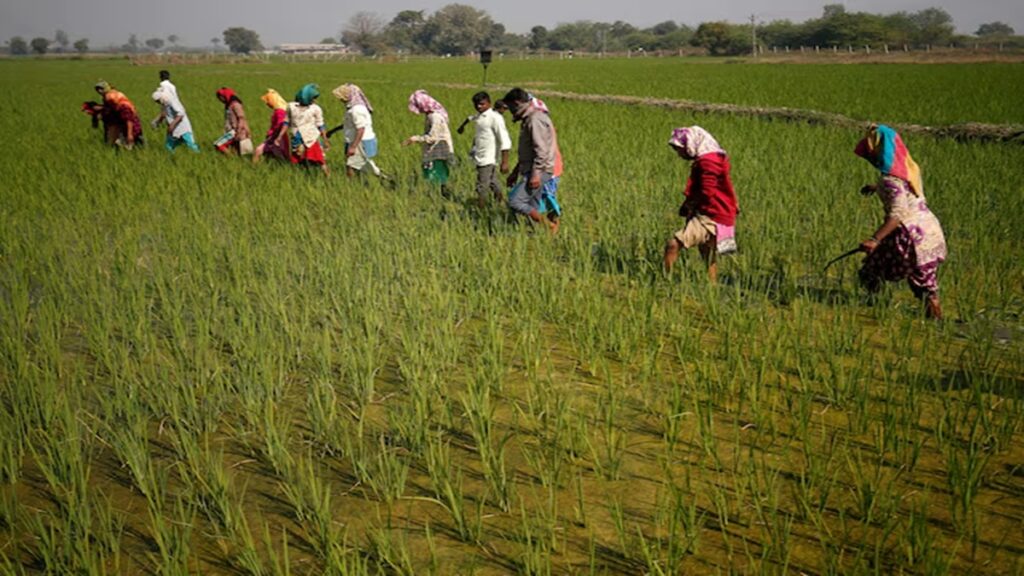In a first-of-its-kind initiative to incentivise for adoption of environmentally sustainable agriculture practices, small holders farmers across eight states including Uttar Pradesh, Madhya Pradesh, Haryana, Punjab and Maharashtra would be financially rewarded with carbon credit soon.
According to Umang Agarwal, head, carbon, Grow Indigo, a joint venture between domestic seed major Mahyco and US-based Indigo, the audit of the first regenerative agriculture carbon programme has been completed under the carbon standard (Verra) protocol, which is a global voluntary greenhouse gas (GHG) reduction programme.
“On the basis of certification by Veera, the carbon credit will be awarded to farmers in the next couple of months,” Agarwal of Grow Indigo told FE. He said that the company’s first project has successfully completed the third-party audit and is now under Verra’s review for credit issuance.
He said that the carbon projects offer smallholders farmers – who grow rice, wheat, cotton, maize, sugarcane and agroforestry – the flexibility with multiple practice changes such as low tillage, direct-seeded rice (DSR), nitrogen management, crop residue management, and agro-forestry.
The company has enrolled 80,000 farmers in Haryana, Punjab, Maharashtra, Gujarat, Madhya Pradesh, Uttar Pradesh, Andhra Pradesh and Telangana covering diverse crops in over 40,000 hectare in various carbon programme.
Farmers who adopt farming techniques – DSR, which improves water use efficiency and no tillage practice which conserves soil organic biomass, prior to planting of paddy and wheat register for the programme for getting carbon credit.
Carbon credits from farmers can be purchased by those industries, especially aviation, mining or manufacturers of fertiliser, who are not in a position to reduce their carbon footprints because of the very nature of their business.
The company will aggregate the credit and sell it to buyers while 75% of revenues earned from the credit flow back to farmers.
Indian Agricultural Research Institute, is providing its expertise in remote sensing technology for satellite monitoring of paddy and wheat fields registered by farmers under the project for validating claims of their adoption of sustainable practices.
The agriculture ministry has recently developed a framework for promoting a voluntary carbon market in India for the agricultural sector to encourage small and marginal farmers to benefit from carbon credit.
“Farmers can adopt sustainable agriculture practices and get additional income from carbon credits as well as other agro-ecological benefits in terms of improved natural capital such as soil, water, bio-diversity etc,” according to an official note.
According to scientists, microbes in flooded rice fields produce methane, some of which is emitted into the atmosphere.
Meanwhile, agri-major Byaer, Shell, Mitsubishi and GenZero who have formed ‘the Good Rice Alliance’, have decided to scale up their carbon credit programme in nine states to empower their paddy farmers for adopting smart agriculture practices — Alternate Wetting and Drying and DSR.
The programme plans to add nearly 8,500 hectares.
In the last one year, the project has generated around 100,000 tonnes of carbon dioxide equivalent (tCO2e) methane emission reductions annually from agriculture positively. This has impacted 10,000 farmers, covering more than 25,000 hectares in the key rice producing states – Andhra Pradesh, Bihar, Haryana, Karnataka, Odisha, Tamil Nadu, Telangana, Uttar Pradesh, and West Bengal.
The farmers in the key rice growing region could earn carbon credit after adopting sustainable practices which results in reduction in greenhouse gases and improve soil carbon sequestration.






